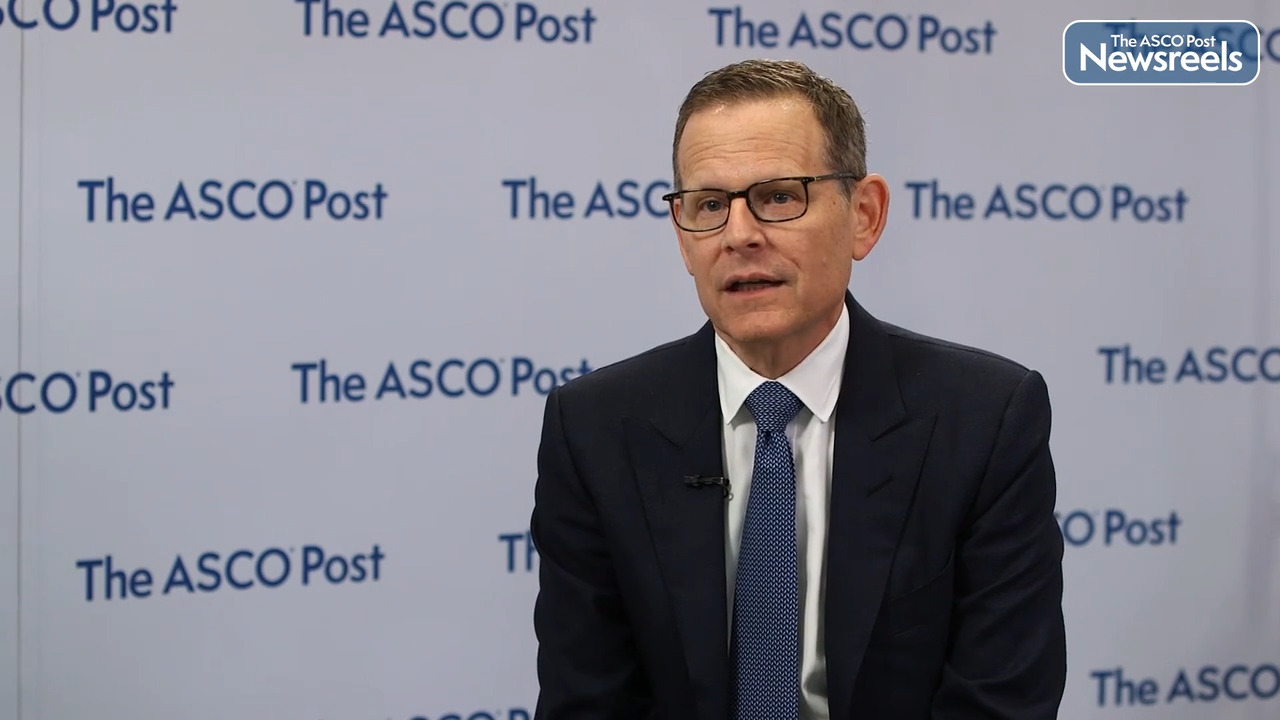Transcript
Disclaimer: This video transcript has not been proofread or edited and may contain errors.
Arlene O. Siefker-Radtke:
The NORSE clinical trial was designed to study erdafitinib and erdafitinib in combination with cetrelimab in the frontline treatment of patients with metastatic urothelial tumors. The premise behind this trial was that the FGF-altered tumor, which has been associated with an immunologically cold tumor microenvironment, may benefit from the combination of erdafitinib with cetrelimab, a checkpoint inhibitor that targets PD-1 expression found on tumor.
This clinical trial was a randomized, yet non-comparative cohort trial similar to what has been used with other clinical trials in this space. Approximately 45 patients were randomized in each arm, erdafitinib only, and erdafitinib plus cetrelimab. Patients must have been ineligible for cisplatin-based chemotherapy and not received prior treatment for their urothelial carcinoma.
When we look at the results, erdafitinib only had an objective response rate that was around 45%, similar to what has been reported on other clinical trials of erdafitinib in the second-line space. The combination of erdafitinib plus cetrelimab was associated with an objective response rate of around 55%, with a trend toward more and deeper responses, regardless of PD-L1 expression levels that were observed in the tumor tissue.
We also saw benefit in progression-free survival with erdafitinib having a 5.5 month progression-free survival similar to second-line strategies and the combination of erdafitinib with cetrelimab having a progression-free survival of around 11 months. This translated to an overall survival of 16 months with erdafitinib only, and the combination of erdafitinib with cetrelimab had a median overall survival of 20.8 months, which is similar to other targeted strategies in the frontline cisplatin-ineligible space.
So, as a result of this trial, we see evidence of efficacy and benefit with erdafitinib in the single-agent space. We also see a potential for benefit with combination therapy that's worth further study.
Not only did we see an improvement in overall survival that was statistically significant, we also saw an improvement in progression-free survival with erdafitinib coming in at 5.5 months, and single-agent chemotherapy having a progression free survival rate that was half that amount. This also translated to an improved objective response rate. Erdafitinib had an objective response rate of 45% compared to 11% observed with single-agent taxane.
So, erdafitinib showed evidence of clinical benefit by objective responses, progression-free survival, and median overall survival in the treatment of urothelial carcinoma. The toxicity profile was also quite similar to what has been observed with other FGF-targeted strategies with hyperphosphatemia, hand-foot syndrome, and mucositis as being the most frequent toxicities.
We saw Central serous retinopathy in approximately 20% of patients, and this was with use of screening, with baseline screening with an ophthalmology exam and optical coherence tomography testing at baseline, and monthly, for the first four months.
So, in all, erdafitinib is here to stay with improved benefit, improved response rate, progression-free survival, and overall survival, providing hope for the longevity of our bladder cancer patients with metastatic urothelial tumors.





